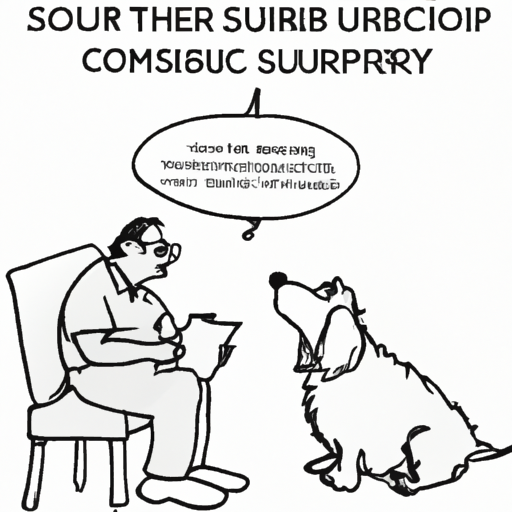As a pet owner, you’ve probably noticed a range of quirky behaviors from your furry friend. But have you ever heard your dog burp and noticed a distinct, unpleasant smell? If so, your dog may be experiencing sulfur burps. These burps, which can smell like rotten eggs or sulfur, can be caused by a variety of factors, including dietary issues and gastrointestinal problems. The good news is, there are solutions to address this issue.
Table of Contents
- Understanding Sulfur Burps in Dogs
- Causes of Sulfur Burps
- Symptoms to Look Out for
- Treatment and Prevention Options
- FAQs
Key Takeaways
- Sulfur burps in dogs can be caused by various factors, including diet and gastrointestinal problems.
- Symptoms can include frequent burping, bad breath, and changes in appetite or behavior.
- Treatment and prevention can involve dietary changes, probiotics, and veterinary care.
Understanding Sulfur Burps in Dogs
Sulfur burps, also known as rotten egg burps, occur when your dog’s digestive system produces gas that smells like sulfur or rotten eggs. This can be a sign of various health issues, so it’s important to identify and address the root cause.
This condition is not only unpleasant for you but may also cause discomfort for your pet. A visit to One Top Dog can provide more insights into understanding sulfur burps in dogs and how to best care for your pet’s health.
Causes of Sulfur Burps
Several factors can contribute to sulfur burps in dogs. It’s crucial to pinpoint the cause to provide the right solution. Below are some common causes:
- Dietary issues: Certain foods, especially those high in protein or sulfur, can cause these types of burps. A sudden change in diet can also be a contributing factor.
- Gastrointestinal problems: Conditions such as gastritis or acid reflux can lead to sulfur burps. These conditions often result from a diet high in fat or spicy foods.
- Bacterial overgrowth: An imbalance in the gut microbiome can lead to sulfur burps. This is often due to a diet low in fiber or high in sugar.
For more detailed information on causes, check out this extensive guide.
Symptoms to Look Out for
In addition to the noticeable smell, there are other symptoms that can indicate your dog is experiencing sulfur burps:
- Frequent burping
- Bad breath
- Changes in appetite
- Changes in behavior, such as increased lethargy or irritability
- Abdominal discomfort
If you notice these symptoms, it’s recommended to consult with a veterinarian for a proper diagnosis.
Treatment and Prevention Options
Treatment for sulfur burps in dogs involves addressing the underlying cause. Here are some common treatments:
Dietary changes: Adjusting your dog’s diet can help reduce sulfur burps. This may involve reducing high-sulfur foods, introducing more fiber-rich foods, or transitioning to a different dog food brand. One Top Dog offers a helpful guide on choosing the right dog food.
Probiotics: Probiotics can help balance your dog’s gut microbiome, reducing the likelihood of sulfur burps. Many pet stores offer dog-friendly probiotic supplements.
Veterinary care: In some cases, sulfur burps can be a sign of a more serious health issue. If dietary changes or probiotics don’t help, it’s important to seek veterinary care. Your vet can provide a proper diagnosis and treatment plan.
Prevention involves maintaining a healthy diet, ensuring your dog gets regular exercise, and scheduling routine vet checkups.
Frequently Asked Questions
Q: Can sulfur burps in dogs be prevented?
A: Yes, maintaining a healthy diet and regular vet checkups can help prevent sulfur burps in dogs.
Q: Are sulfur burps in dogs a sign of a serious health issue?
A: Sulfur burps can be a sign of health issues like gastrointestinal problems. If your dog’s sulfur burps persist despite dietary changes, consult with a veterinarian.
Q: Can I give my dog human probiotics to address sulfur burps?
A: While some human probiotics are safe for dogs, it’s always best to use products specifically designed for dogs. Consult with your vet before giving your dog any new supplements.
In conclusion, while sulfur burps in dogs can be unpleasant, understanding the causes and solutions can help you effectively address the issue. Remember, always consult with a veterinarian if you’re uncertain about your dog’s health. For more pet care tips, visit One Top Dog.



